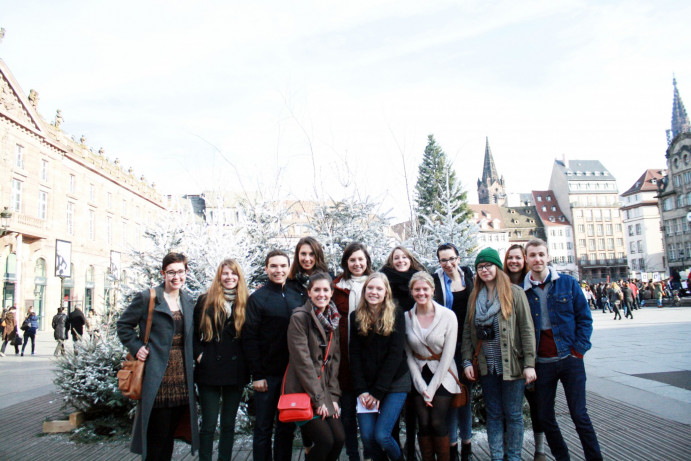Nancy Study Center

Nancy: A City of Art and History
Since its founding in 1048 as a military outpost of the Dukes of Lorraine, Nancy has resisted countless wars and sieges. Though governed by the French briefly, the region was independent, or at least autonomous for centuries. In fact, it was not until 1766 that Nancy and the surrounding dukedom of Lorraine finally became a part of the French kingdom. The independent spirit lived on as the city took on the ideas of the Italian Renaissance. Two other legacies of t hat mind set are 17th century artist Georges de la Tour - a pioneer of the chiarascuro style, and late 19th century artists Majorelle, Daum, and Gallé, founders of the Ecole de Nancy movement.
Today, a city of 258.000, including 20 adjacent communities, Nancy continues to innovate. It is an important center for business and technology research while retaining the charm of a provincial French town. The modern tramway system and university research facility at Brabois attest to Nancy’s dynamic future; the winding streets and massive city gates of the vieille ville serve as a reminder of the city’s medieval past.
The fact that most students live with host families and that the city is relatively free of other foreigners means that students are fully integrated into French culture twenty-four hours a day. Nancy’s cultural and university life is extensive with fine theater, orchestra, ballet, and opera companies. The city hosts an internationally acclaimed jazz festival and a national book fair every year.
The University in Nancy
The University of Nancy was founded in 1572 in the nearby town of Pont-a-Mousson. It quickly became the center of Jesuit study in eastern Europe. In 1769, the university was transferred to Nancy. Today, wtih 45,000 students, the university system includes several campuses or sites in town, three autonomous administrations, and in addition, other independent institutions of higher education.
LCCF participants may choose from a wide range of academic disciplines available to them. Moreover, there are many activities to choose from - sports to theater and university chorus - where many students have found lasting friendships.
The LCCF director’s office is at Sciences Po de Paris’s French-German undergraduate college in Nancy, where students will also have unique access to a lecture series of national and international experts and actors in government, politics, and public policy.
email bethkzehr@hotmail.com
voice 011-333 88 37 31 81
fax 011-333 83 30 01 64
Administrative Director Bethany K. Zehr
Academic Director Ronald D. Lyndaker
Strasbourg Center
Lewis & Clark College in France
33, rue de Zürich
67000 Strasbourg
France